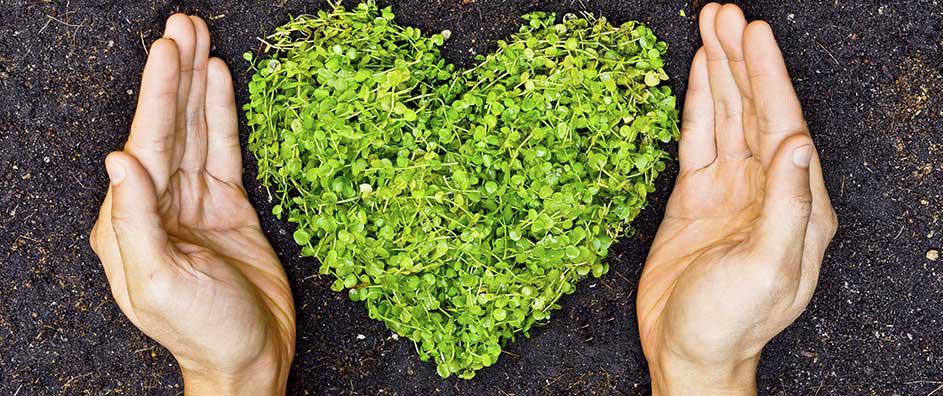The climate crisis is not merely an environmental calamity; it represents a multifaceted dilemma requiring collective introspection and action. Woven into the fabric of Bahá’í teachings is a profound appreciation for the interconnectedness of all living things, which invites followers to engage with climate adaptation not solely as a pragmatic necessity, but also as a spiritual imperative—a quest for consensus that transcends cultural and geographical divides.
Bahá’í philosophy posits that the natural world is a reflection of divine wisdom, inviting humanity to cultivate a reverence for creation. This perspective infuses climate adaptation with a sense of purpose—not simply for survival, but as an act of stewardship that honors the intrinsic value of the earth. The metaphor of the garden serves as an apt illustration: just as a garden thrives through careful tending, so too must humanity nurture the planet. Every action taken in favor of ecological preservation is a step toward fostering harmony within this vast and intricate garden of life.
Central to the Bahá’í understanding of climate adaptation is the notion of collective action, which is underscored by the acknowledgment that the challenges posed by climate change are global in scale. Individual efforts, while commendable, must coalesce into a broader consensus that galvanizes communities, nations, and humanity as a whole. This consensus is not merely a contractual obligation; it is a spiritual aspiration that embodies the Bahá’í principle of unity in diversity. The myriad voices and perspectives arising from various cultures enhance the collective wisdom, crafting a more nuanced and effective approach to adaptation.
The metaphor of the “sea of humanity” is particularly salient in this discourse. Each individual may be likened to a droplet in this expansive ocean; alone, these droplets may seem inconsequential, yet together they form a powerful current capable of carving new paths within the landscape. This conceptualization emphasizes the necessity of collaboration, encouraging a dialogue that respects and integrates different cultural insights into environmental stewardship.
Moreover, the Bahá’í emphasis on education intersects poignantly with climate adaptation efforts. In this context, education serves as a fertile soil from which wisdom can grow. By disseminating knowledge about climate science, ecological principles, and sustainable practices, Bahá’í communities can empower individuals to be catalysts for change. Education is not the mere transmission of information; rather, it provides a foundation for cultivating critical thought, fostering innovative solutions, and inspiring ethical responsibility toward the environment.
While individual humility is essential, it must be balanced with collective ambition. The Bahá’í teachings encourage an active engagement with the world that is grounded in spiritual principles. One can liken this to the concept of a “tapestry,” wherein each thread—representing diverse peoples and ideas—intertwines to create a cohesive picture. The richness of climate adaptation efforts is enhanced through this tapestry, as it integrates insights from various disciplines—scientific, economic, and spiritual—into a holistic approach that acknowledges the complexities of today’s challenges.
In addition to the intellectual and communal frameworks, the emotional dimensions of climate adaptation are also pivotal. The Bahá’í teachings illuminate the importance of compassion, encouraging individuals to cultivate a deep emotional connection with the earth and its inhabitants. In recognizing the suffering of those adversely affected by climate change, humanity awakens to its collective responsibility. This emotional resonance can serve as a powerful motivator, igniting the fire of altruism and prompting individuals to act as stewards of the natural world.
There lies a unique appeal within the Bahá’í conceptualization of the climate crisis: it reframes the narrative from one of despair to one of hope. The central belief that humanity is inextricably bound to a shared fate underscores the urgency of acting with a spirit of collaboration. This hope, akin to a beacon in the fog, invites individuals to move beyond apathy and engage actively in finding solutions. With each voice added to the chorus advocating for climate adaptation, a resonance is created that can transcend barriers, promote solidarity, and foster a culture of sustainability.
Furthermore, this discourse naturally leads to the concept of “spiritual hunger.” In the face of the climate crisis, there exists a longing for deeper connections—not only with one another but also with the earth itself. This yearning, a manifestation of the human spirit, drives individuals to seek meaning in their actions as they endeavor to navigate the complexities of climate adaptation. It is this spiritual hunger that compels individuals to foster collaborative efforts, weave networks of support, and cultivate an ethos of responsibility toward the world.
Ultimately, the climate crisis is an invitation to reflect on the values that underpin human existence. Bahá’í teachings encourage a shift away from materialism, inviting a spiritual awakening to our shared responsibilities. This transformational perspective fosters an understanding that climate adaptation is not merely about technical adjustments; it embodies the moral and ethical imperatives that guide humanity’s relationship with the world. Thus, in nurturing the burgeoning consensus that emerges from interfaith dialogue, communal action, and educational outreach, humanity can embark on a pilgrimage toward sustainable living—a journey that promises to enrich both the spirit and the environment.
As society grapples with the consequences of climate change, the Bahá’í teachings offer a roadmap that intertwines spiritual hunger with the urgent need for consensus around climate adaptation. It is a collective endeavor, grounded in unity, compassion, and the noble pursuit of truth, that beckons humanity to rise to the occasion. Through this synthesis, the possibility of a resilient and flourishing planet comes into focus, illuminating a path laden with promise and hope for all of creation.
